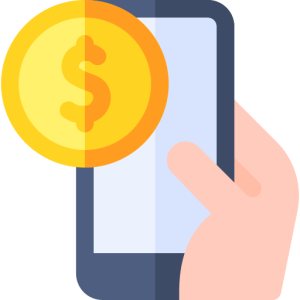Tracking Savings: Techniques for Monitoring Your Finances

New user? Join now and get $2 starter gift!

New user? Join now and get $2 starter gift!
Do you often find yourself wondering where your money goes at the end of each month? Are you looking for effective ways to manage your finances and build your savings? Look no further! In this blog post, we will explore various techniques for tracking your savings and monitoring your finances. By implementing these strategies, you can better understand your financial situation and take steps toward a more secure and prosperous future.
Setting clear financial goals is pivotal to tracking your savings and achieving financial success effectively. When it comes to your finances, having a destination in mind is essential. By defining your goals, you provide a sense of purpose and direction, enabling you to make informed decisions and stay motivated.
Begin by identifying both short-term and long-term financial goals. Short-term goals may include saving for a vacation, paying off a credit card debt, or building an emergency fund. These goals provide immediate satisfaction and serve as stepping stones toward your long-term aspirations. Long-term goals typically involve more substantial financial milestones, such as buying a home, funding your children’s education, or planning for retirement.
To ensure your goals are practical, it’s crucial to make them SMART – specific, measurable, achievable, relevant, and time-bound. Specificity helps you define exactly what you want to achieve. For example, instead of setting a vague goal to “save money,” specify the amount you want to save and its purpose. Measurability allows you to track your progress objectively. Whether saving a certain percentage of your income each month or reaching a specific dollar amount by a particular date, having measurable goals ensures you can monitor your success and adjust as needed.
In today’s digital age, technology offers many tools and resources to simplify the process of tracking your savings and monitoring your finances. Embracing these technological advancements can provide you with valuable insights, automate tasks, and enhance your financial management capabilities.
Start by leveraging the power of mobile banking apps. Most banks now offer user-friendly apps that allow you to track your transactions, check your account balances, and set up alerts for unusual activity. These apps often provide built-in budgeting features that automatically categorize your expenses, giving you a clear overview of where your money is going. Regularly checking your app lets you stay up to date with your financial activity and identify any areas where you might be overspending. Additionally, some banking apps provide personalized spending insights and recommendations, empowering you to make more informed financial decisions.

Dedicated budgeting apps can also be incredibly helpful in tracking your savings. Apps like Mint, YNAB (You Need A Budget), and PocketGuard offer comprehensive financial management features. They allow you to link your bank accounts, credit cards, and other financial accounts in one place, providing a holistic view of your financial health. These apps categorize your expenses automatically, generate spending reports and charts, and offer goal-setting functionalities.
With their intuitive interfaces and visual representations of your financial data, these apps make it easy to identify trends, adjust your budget, and track your progress toward your savings goals. Many also send you notifications or reminders, ensuring you stay on top of your financial game.
Tracking your savings and managing your finances can sometimes feel overwhelming or isolating. That’s why seeking support and accountability from others can be immensely beneficial in staying on track and achieving your financial goals. You gain access to valuable insights, encouragement, and a sense of community by involving others in your financial journey.
One way to seek support is by reaching out to friends or family members with similar financial goals or interests. Share your aspirations, challenges, and progress with them. Engaging in open conversations about money can provide different perspectives and helpful tips. You may discover new strategies or resources that you hadn’t considered before. Moreover, having someone to celebrate your milestones and share in your successes can be incredibly motivating. Whether discussing frugal living tips, investment opportunities, or debt reduction strategies, exchanging ideas and experiences can foster a supportive environment that propels you toward financial well-being.
In addition to personal connections, online communities and forums offer a wealth of support and accountability. Joining groups focused on personal finance or savings goals allows you to connect with like-minded individuals working towards financial stability. These communities provide a platform to ask questions, seek advice, and share your progress.
Engaging in discussions and reading about others’ experiences can inspire you to stay committed to your financial goals. Additionally, many online communities host challenges or accountability partnerships where members can hold each other responsible for their financial actions. By actively participating in these communities, you tap into a network of support that encourages and uplifts you on your financial journey.
The cash envelope system is a fantastic option if you’re looking for a tangible and effective method to track your spending and stick to your budget. It involves allocating specific amounts of cash to different spending categories and placing the cash in separate envelopes designated for each category. This method brings a sense of visual clarity to your spending and promotes mindful decision-making.

To implement the cash envelope system, identify your main spending categories, such as groceries, entertainment, transportation, and dining out. Determine how much money you can allocate to each category based on your budget. Then, withdraw the designated amounts in cash and place the appropriate sum in each corresponding envelope. For instance, if your monthly grocery budget is $300, place $300 in cash in the “Groceries” envelope. This system helps you establish clear boundaries for your spending and serves as a tangible reminder of your financial goals.
Using cash envelopes encourages conscious spending because you see and feel the money leaving your envelope with each transaction. It prompts you to consider the value and necessity of your purchases before making them. When the cash in an envelope is depleted, you have reached your spending limit for that category.
This visual cue helps you make informed choices, prioritize expenses, and avoid overspending. The cash envelope system can be particularly beneficial if you rely heavily on electronic payments, as it brings a tangible connection to your financial transactions and enhances your awareness of where your money is going.
Taking the time to carefully review your bills and financial statements is crucial in monitoring your finances and ensuring accuracy. It lets you stay informed about your expenses, identify errors or discrepancies, and take control of your financial obligations.
When your bills and statements arrive, set aside dedicated time to thoroughly review them. Start by verifying the amounts charged, ensuring they align with your expectations and the services or products you received. Pay attention to any unusual or unexpected charges. Contact the relevant service provider or financial institution to clarify the details if you encounter an unfamiliar or suspicious item. By proactively reviewing your bills, you can catch errors or fraudulent activity early, potentially saving you from unnecessary expenses and protecting your financial security.
In addition to verifying the amounts, pay close attention to your bills’ due dates and payment terms. Late fees and interest charges can quickly accumulate if you miss payment deadlines. Consider setting up automatic bill payments or creating reminders in your calendar to ensure timely payments.
Taking the time to review your bills also presents an opportunity to evaluate your recurring expenses. Are there any services or subscriptions that you no longer use or need? Assessing your recurring expenses allows you to identify areas where you can cut back and save money.
Tracking your net worth is a valuable practice that provides a comprehensive view of your financial progress and measures your overall wealth. Net worth is calculated by subtracting your liabilities (debts and loans) from your assets (savings, investments, and property). Regularly monitoring your net worth allows you to gauge the effectiveness of your financial strategies and make informed decisions about saving, investing, and paying off debts.

Start by compiling a list of all your assets and their corresponding values. This may include your bank account balances, investment portfolios, retirement accounts, real estate properties, and valuable possessions. Next, list all your liabilities, such as mortgage loans, credit card debts, student loans, and personal loans. Subtracting your total liabilities from your assets will give you your net worth. By tracking this figure over time, you can assess the growth of your wealth and the impact of your financial decisions.
Monitoring your net worth offers multiple benefits. Firstly, it provides a clear picture of your financial health and progress towards your goals. If your net worth increases steadily, your assets are growing faster than your liabilities, and you are building wealth. On the other hand, a stagnant or decreasing net worth may indicate areas that require attention, such as reducing debt or increasing savings and investments.
Secondly, tracking your net worth allows you to celebrate milestones and accomplishments. You can acknowledge and reward yourself for your financial discipline and achievements as you reach certain financial targets, such as surpassing a specific net worth amount.
Lastly, by regularly reviewing your net worth, you gain insight into the impact of your financial decisions and can adjust your strategies accordingly. For instance, if your net worth is not growing as expected, you may consider reevaluating your investment choices or exploring opportunities for additional income streams.
High levels of debt can hinder your financial well-being and limit your ability to save and invest for the future. That’s why it’s essential to analyze your debts and develop a plan to reduce them effectively. Taking a proactive approach to managing your debt puts you on the path to financial freedom and stability.
Start by gathering all the information about your debts, including credit card balances, student loans, car loans, and mortgages. Take note of the outstanding balances, interest rates, and minimum monthly payments for each debt. This comprehensive overview lets you prioritize your debts based on interest rates and outstanding balances. Consider focusing on high-interest debts first, as they tend to significantly impact your overall financial health. By paying off high-interest debts aggressively while making minimum payments on others, you can save on interest payments and expedite your debt repayment journey.
Once you have identified your priority debts, explore strategies to reduce and eliminate them efficiently. One approach is the debt avalanche method, where you allocate extra funds toward the debt with the highest interest rate while making minimum payments on the others. As you pay off the highest interest debt, you move on to the next one in line. This method minimizes the overall interest paid and accelerates your progress toward becoming debt-free. Another approach is the debt snowball method, which involves paying off the smallest debt first, regardless of interest rates.
This method aims to gain momentum and motivation by experiencing quick wins as you eliminate smaller debts. Both strategies have their merits, so choose the best approach for your financial goals and motivate you to stay committed to reducing your debt.
Monitoring your finances and tracking your savings is an empowering process that puts you in control of your financial future. Remember, financial well-being is a journey, and it’s never too late to start. Take the first step today and embrace the techniques outlined in this blog post. Your future self will thank you for it!
And if you need extra cash for those envelopes, remember that Honeygain is here to help! Simply install the app and keep it running. That’s all it takes to get passive income! Zero effort is required!